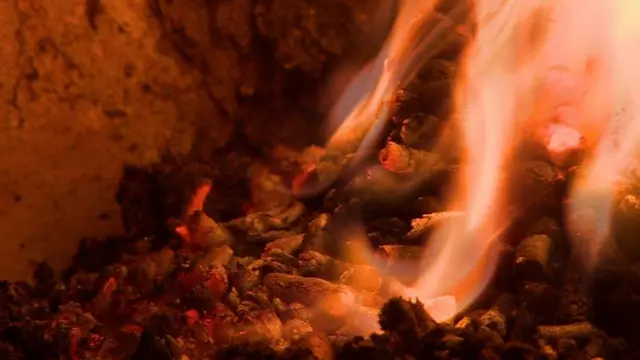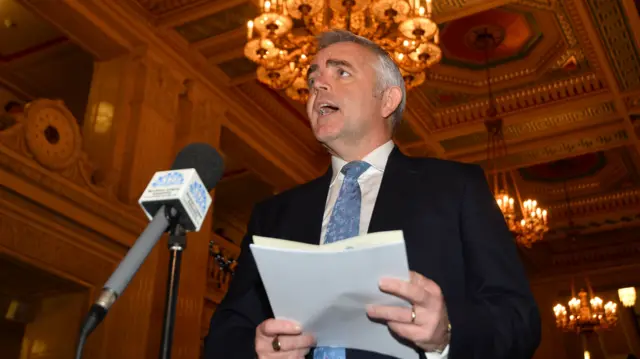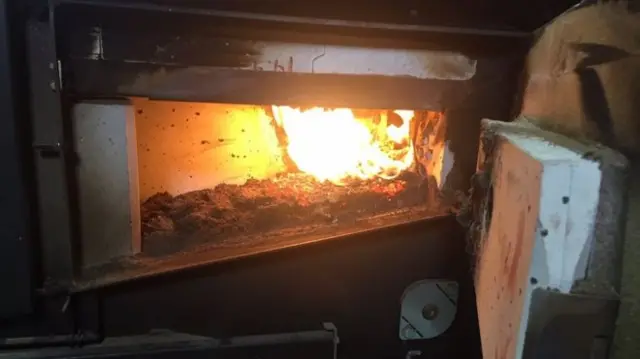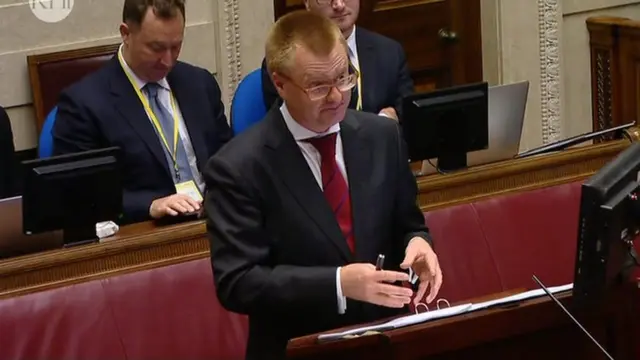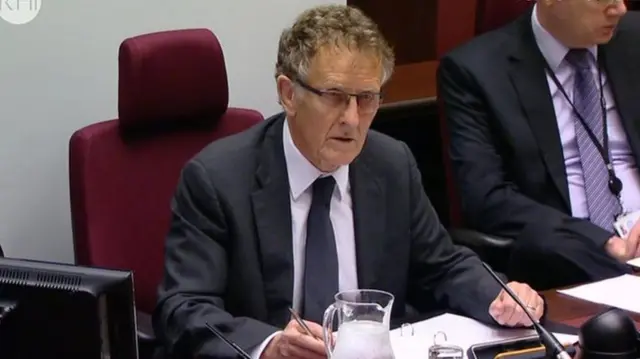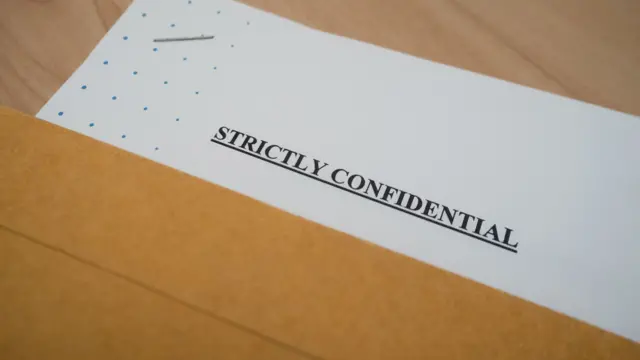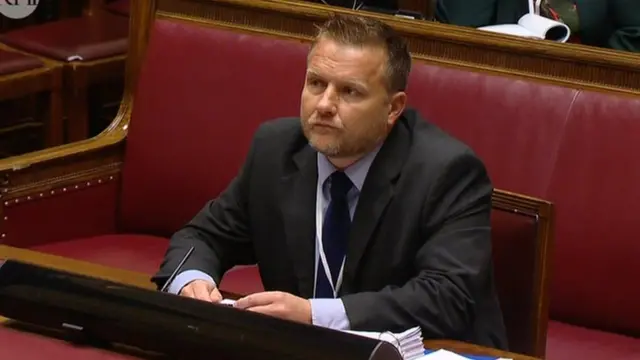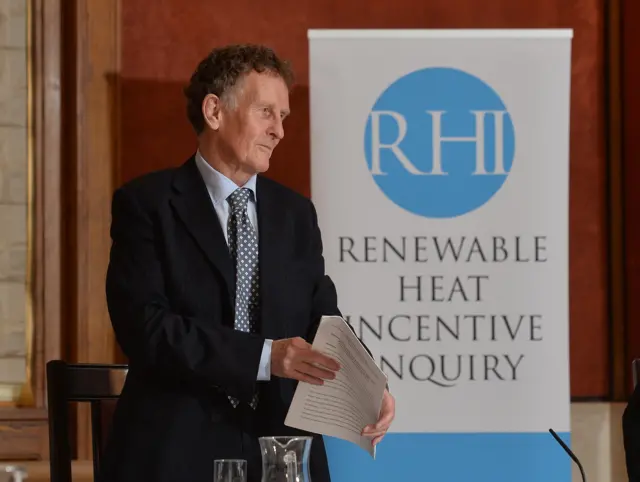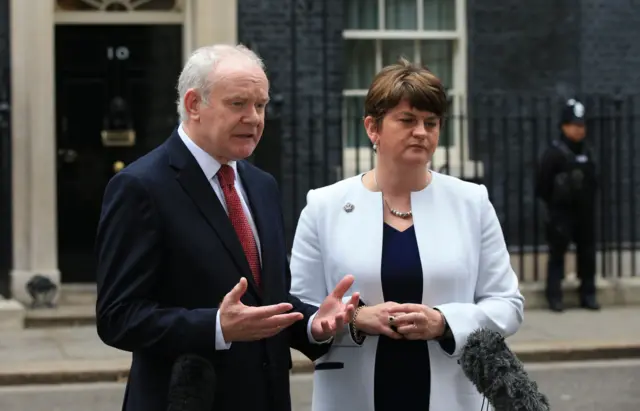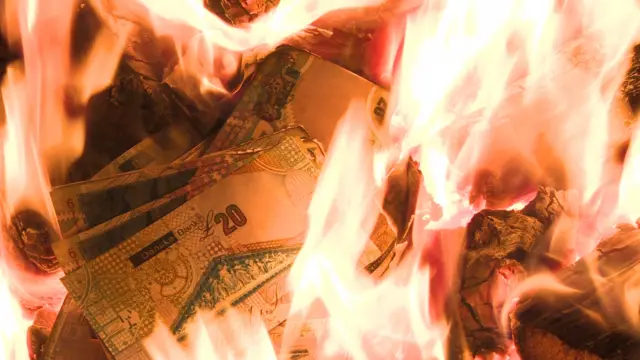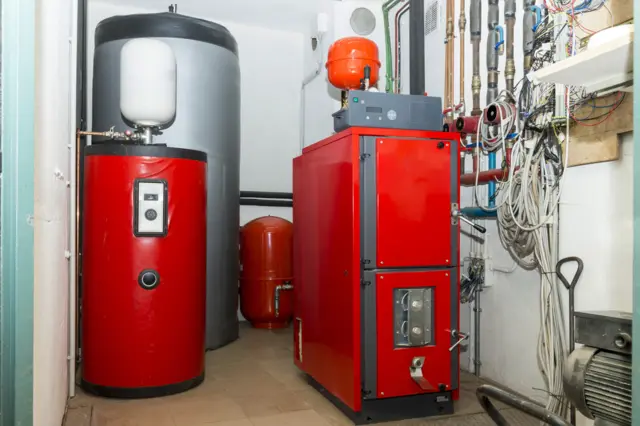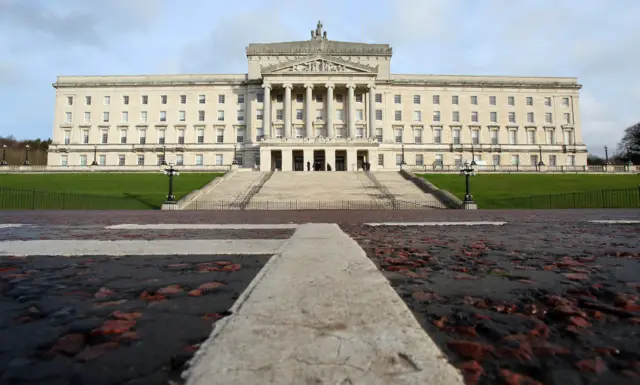'Didn't challenge superiors like I normally would'published at 11:35 BST 19 June 2018
Mr Aiken asks the witness why there was a "dilution of the level of risk that the minister may face" in relation to the RHI scheme.
Sir Patrick says that Mr Bell should've been told that the scheme posed a risk, rather than being given the impression that it could be handled with "sidestepping... in order to gain funds".
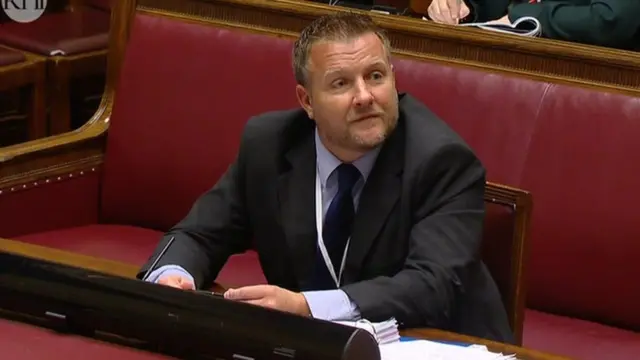 Image source, RHI Inquiry
Image source, RHI Inquiry"There isn't any other way of reading this submission," the inquiry chair adds.
Mr Wightman says his job was "quite high-pressure at the time" and he took direction from his superiors about changes they wanted made to the submission without thoroughly challenging their suggestions.
"Normally I would challenge it," he says, "but... there was an awful lot of trains in motion."
